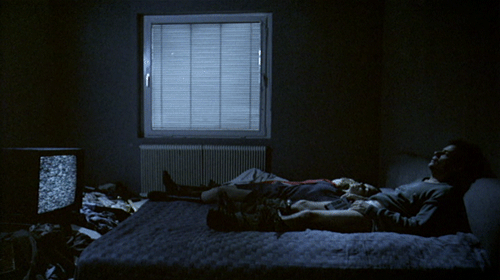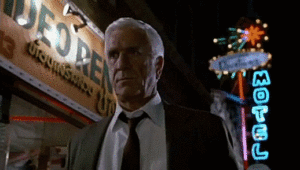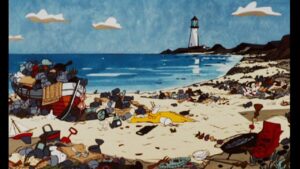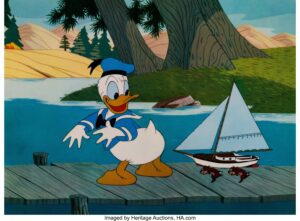The Seventh Continent (1989)

…………………………………………………
The Seventh Continent Movie Review
The Seventh Continent is a 1989 Austrian drama film directed by Michael Haneke and starring Dieter Berner. It’s a typically depressing Haneke picture.
………………………………………………….
“Okay, time to say your prayers“
…………………………………………………..
…………………………………………………..
It follows the last years of one Austrian family. They lead routine urban middle-class lives, with hopes of escaping to Australia to start a new life, but suddenly decide to destroy themselves without any apparent reason. For a debut feature, Haneke already had a firm grasp of his filmmaking style, which is very heavy, tragic subject matter and an artistic approach at executing it with the atmosphere being palpably depressing and undeniably impressive.
Although he displayed all of his strengths already in his debut, I still found it problematic in its excessively nihilist and depressing outlook on life. Yes, most of his movies share those feelings, but this one went overboard and became simply overly dark and difficult to bear. Again, that may be its strength, but it depends entirely on the audience’s current mood while watching this movie whether you will love it or not.
The characterization is slight and the acting is only fine. That worked for me, though, as the film is clearly meant to evoke the atmosphere of dread and depression first and foremost and not to develop its characters, and it does that in spades. Haneke’s direction is also reliably terrific and confident, especially as it relates to the artistic merits.
Yes, The Seventh Continent is accomplished in its merits, especially in cinematography. Some of the shots here are incredible. Some scenes are so memorable. The fish dying out on the floor was such disturbing imagery that definitely affected me a lot. The movie is very effective at conveying the family’s doom and that is its biggest strength.
…………………………………………………..
…………………………………………………..
But in terms of the overall storyline, it was not only overly nihilist, but too simple and not enough happened here. The first act with the dialogue was interesting, but ultimately it did not matter much in the context of the whole storyline. It was just one note over and over again, the movie hit me on the head with its destruction so much that I was quickly tired of it, though the third act remains impressive in its various achievements.







Beginning with a view from behind a soapy windshield as a car moves through a carwash, Mr. Haneke creates a sense of claustrophobia and disorientation that defines his characters lives. At first we glimpse only the most banal details: close-ups of a digital alarm clock being turned off at 6 A.M., a woman s foot moving into a red bedroom slipper, a bowl of cornflakes. Ten minutes or so into the film we see the perfectly nondescript faces of a 30-ish man, his wife and their young blond daughter. But Mr. Haneke s flair is ultimately at the service of a script that calls to mind pretentious, emptied-out terms like anomie and ennui. Though this tale of a family s increasing unhappiness with the dull order of things is inspired by newspaper reports of real-life tragedies, The Seventh Continent comes to seem as if it were made by an exceptionally talented and impressionable college sophomore who had just read Kirkegaard for the first time.